Joe Mathews of KCRW's Zocalo thinks so.
I listened to Mathews complain about California's new accountability plan today on Los Angeles' NPR affiliate. He said the new program, which gives feedback on multiple measures rather than API, is confusing and lacks coherence.
He's missing the purpose of this shift.
“People want simplicity (that test scores provide) but simplicity hasn’t gotten us very far,” said former State Superintendent of Public Instruction Bill Honig, in an Edsource interview. “We really have to look at the breadth of what is going on.”
If we encourage parents to choose a school based on a Yelp-like rating, we're encouraging a superficial look--usually based on test scores.
The new accountability plan aims to give parents a picture of many aspects of a school. That's important, because more and more research shows that test scores are a result of a lot that is beyond a school's control.
Encouraging parents to look at the many aspects of the school is a good thing.
Through most of the years of my children's education, schools were reduced to a single number. That meant that schools that were well-resourced, with students who were well supported at home and easy to teach scored high, while those schools that served needier students scored lower.
Should I look only at schools with one type of student? No. Diversity is better than division.
Walgrove Elementary school in my neighborhood of Venice has had a stellar special education program whose families are embraced by the whole school community. It's a large part of the culture of the school. So special ed students come from all over. This impacted the school's overall test scores for a while, making it look like there was a problem. One parent tried repeatedly to get the rating website GreatSchools.org to broaden its criteria, to no avail. I told LA Times columnist Steve Lopez about it, hoping he'd write about it. But he found it hard to believe that many parents really picked schools based on online ratings. (Isn't that almost sweet?)
The new accountability plan gives a school like this a better chance of continuing to do its good work because it provides some context to parents.
There's another reason the broader focus is better. The obsession with test scores pushed too many schools to narrow class offerings to what is tested.
We want to help parents navigate, but we don't want to be overly simplistic. It's important we get it right, too.
"All across the country people are paying attention to what California is doing,” Stanford's Linda Darling-Hammond recently said.
What do you think? You can leave comments on Joe Mathew's story here: KCRW Zocalo.
